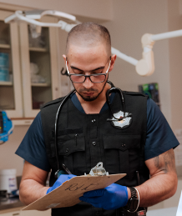This page is designed to provide quick and easy access to the resources and information that our users find most valuable.
Our most searched and most popular content covers a wide range of areas, from leadership and performance to offender programming and reentry. We have resources on topics such as PREA, Thinking for a Change, staff wellness, diversity, equity, and inclusion, and learning. We also have information on emerging trends and best practices in corrections.
Whether you're new to the field or a seasoned professional, NIC has the resources to support your growth and development.











